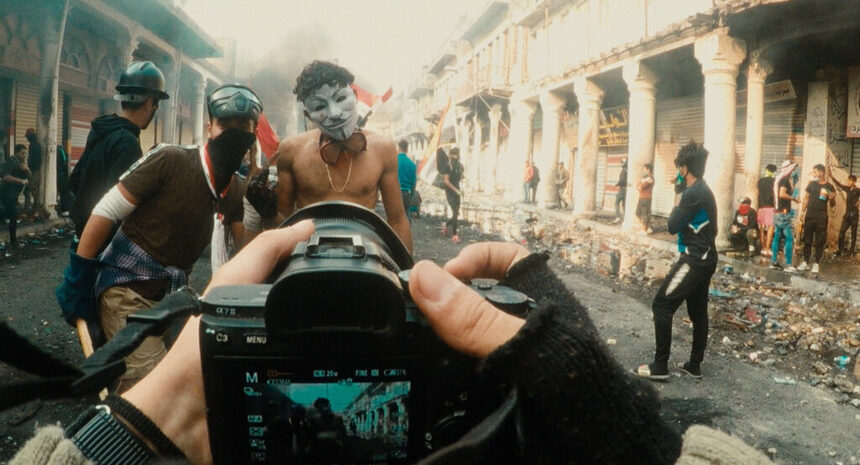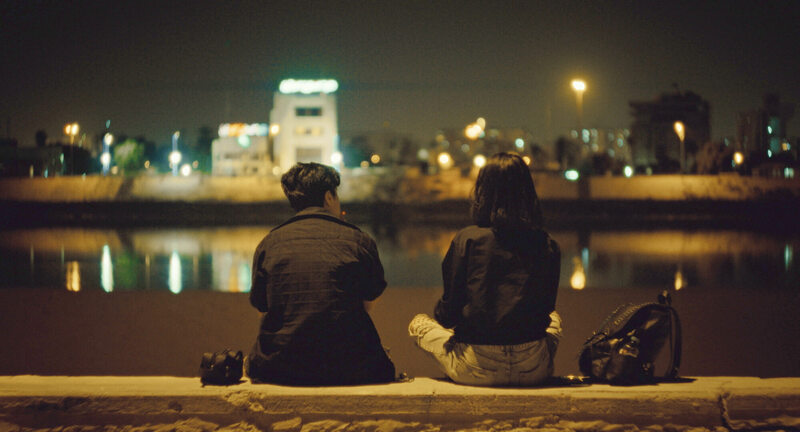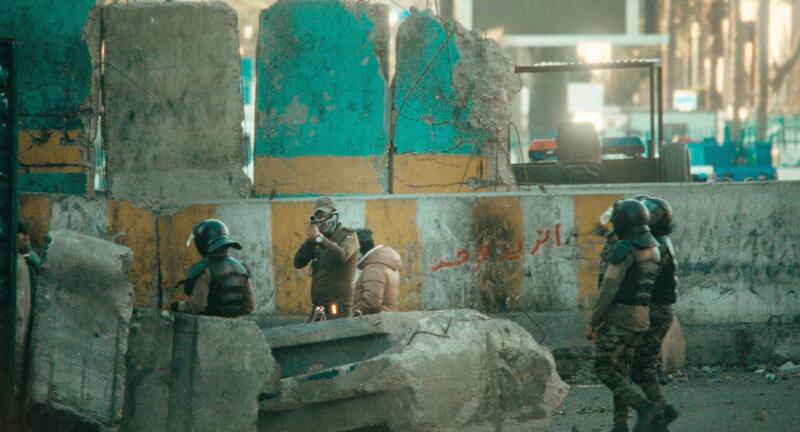Hot Docs 2024 Review: IMMORTALS Follows Iraqi Youth on the Frontlines
Swiss director Maja Tschumi presents a compelling exploration of the lives of Iraq's youth navigating the post-US invasion landscape, through the lens of the pivotal 2019 October Revolution.

Swiss director Maja Tschumi presents an evocative portrayal of Iraq’s youth in the aftermath of the US-led invasion, focusing on the pivotal 2019 October Revolution, in her sophomore feature Immortals.
Tschumi captures a raw depiction of resistance and hope of the young generation on the intersection of (geo)politics and social change in the conflict-torn country. The director follows two young Iraqis, Milo and Khalili who represent the young generation's aspirations, but also serve as conduits for broader socio-political and psychological commentary.
The film is structured into three distinct chapters — Hidden Battles, Confrontations, and Decisions — each focusing on personal and collective experiences of protagonists. In Hidden Battles, Tschumi introduces Milo, who navigates the deeply entrenched gender segregation and systemic constraints in Iraq by dressing as a man.
Her parents burn all her clothes and passport and keep her basically in a domestic prison. She has to leave the house under the shroud of secret and in her brother's clothes. The chapter highlights the stark realities faced by many women in her position while contemplating her next move.
The next chapter, Confrontations, shifts the focus to Khalili, whose first-hand footage from the protests provides a visceral backbone for the film and its testimony. His footage from the protests and confrontations lends an urgent, raw quality to the film, vividly showcasing the unity and determination of the youth as well as the opposing force.
The narrative arc culminates in Decisions, which delves into the aftermath of the quelled uprising and the significant personal and societal choices faced by the protagonists. The decisions that Milo and Khalili make — balancing safety with activism, personal lives with broader societal impacts and future prospects — are portrayed to depict the high stakes of political dissent.
Tschumi is known for her incisive and thoughtful documentary style, as she has focused on themes of social justice and cultural exchange before. Her approach often involves immersive research and close collaboration with her subjects. In Immortals, the director engaged both protagonists into the creation of the film. Tschumi’s filmmaking technique is distinguished by her methodical blending of observational cinema with storytelling, allowing her to create work that is both revealing and emotionally resonant.
Milo in this case becomes the representation of oppression, not only state but also by family due to the conventions and traditions. As a staunch feminist, she is finding for ways to live her life. Her scenes are an extension of the talking-head segment.
While Tschumi shoots her in confined spaces as Milo offers her take on the domestic situation, she is also shown outside her home. Tschumi employs a mix of direct cinema and re-enactments, a method she uses effectively to navigate the challenges of filming in restrictive environments of the Iraqi social landscape. The re-enacted scenes are seamlessly integrated into the film and are frequently unrecognizable from the direct cinema footage.
Khalili's testimony provides an unvarnished view of the protests, capturing the intensity as he continues to film, even in perilous situations. His dynamic first-person perspective lends a surreal quality to the experience.
At times, the film adopts the aesthetics of a video game, depicting chaotic street rampages, moments of hiding from gunfire, and the haphazard rescue of the wounded. This immersive effect is abruptly contrasted with stark realism when Khalili is injured. The GoPro camera mounted on his head is dislodged as he is treated in an improvised hospital tent, while his peers continue filming him.
Tschumi blends on-the-ground footage with reflective, personal testimonies to probe the collective consciousness of Iraq's youth, closely examining the socio-political dynamics shaping their lives. The film captures the ongoing struggles for civil liberties and gender equality in post-conflict societies.
While news reports often highlight protests like those of the Letzte Generation, a group of young climate change activists, Immortals offers a different portrait of a generational uprising and what it means to grow up in Baghdad. Although Tschumi does not delve into local political nuances, such as the role of the Sadrists who occupy parliament and other local political divisions, the film focuses on the depiction of youth and young adults facing an uncertain future in their own country amid political turmoil.









